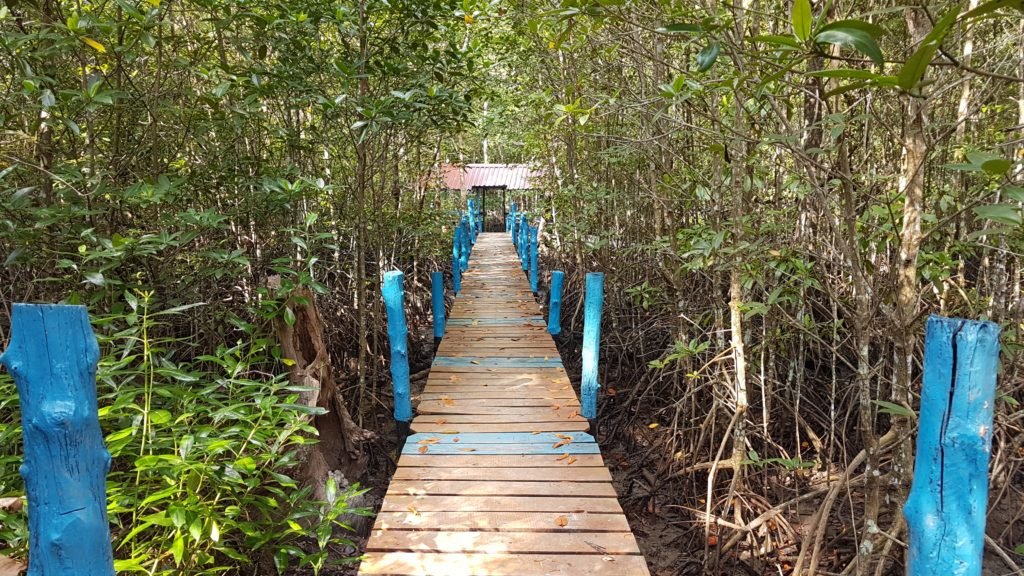Global travel industry has been booming for last few years, creating millions of jobs and revenue for the respective geographies. While on one side, it’s a welcome trend and a new sunshine sector for generating employment, there is a huge environment and social cost in terms of more and more people travelling, putting a strain on the delicate eco systems of the popular tourists destinations, increase in pollution, construction boom, traffic congestion, ground water depletion and damage to heritage monuments, to name a few.
Who can forget the recent news about traffic jam at Mount Everest and more than 50 tonnes of human caused trash threatening air pollution and disease in the region? Huge traffic jams at popular hill stations during long weekends and summers is a common sight. Many hill stations that we visited a decade or two ago, look totally different now. I visited a small hill station Pachmarhi in Madhya Pradesh in 2003. It’s a small quiet place in Satpura Range, known for beautiful waterfalls and sunny pools and streams. The popular ad for Liril soap was shot at one of the water falls. I visited the hill station again in 2009 and picture had changed completely. A waterfall, reachable after a steep downward descent through large stone stairs, was totally crowded, few shops right next to the water selling cold drinks, chips, merry crowds clicking away and throwing trash in water! No surprises that the average temperature has gone up too.
I visited Sikkim last year and North Sikkim has recently been opened to tourists. The local village panchayats as well as governments have mandated the area as No Plastic Zone. Plastic bottles are not allowed to be taken, all vehicles are checked at check points. Tourists are advised to bring reusable bottles only.
Before governments take such steps, I think as educated and aware citizens we must travel in a responsible and sustainable way. It is possible if a little thought is given to it. Let us see, what and how we can do something:
- Carry steel or reusable bottles. Most hotels have filtered water systems, if you insist they provide water in jugs instead of complimentary plastic bottles. Think about the plastic waste hotels must be generating with two bottles given to each room each day. Most railway stations, airports as well as airlines provide filtered water.
- Reuse towels, better still, carry your own light weight cotton towels and use them to the extent possible. Daily change of towels in rooms consumes huge amount of water. Carry your own toiletries, it saves so many tiny bottles of soap and shampoos discarded every day!
- Leave a note behind in suggestion book for the hotel to switch to filtered water instead of bottled water or talk to the manager. Most hotel take guest feedback seriously.
- Use resources, as you would at home. Switch off lights, air conditioning, geysers and use them judiciously. Use water responsibly, most tourist places have acute water shortage and local population suffers to sustain tourism consumption. Do not waste food, at home or on vacation.
- Avoid private taxis, explore using public transport, cycling or walk around. Good for health, good for environment and one car less in traffic queues.
- Explore home stays, local boutique hotels, guest houses, the money goes to the local economy and supports livelihoods directly.
- Eat at local restaurants, food joints to get a taste of the local cuisine and support the small businesses. The non-local food that tourists often demand is usually brought in from markets, miles away.
- When buying souvenirs, look for locally made products. A lot of souvenirs, gifts etc. are mass produced in China and sold by dozen at all tourist locations. I found China made souvenirs flooding Egypt’s tourist markets! Buy handicrafts from street vendors and local artisans instead of large stores. Avoid hard bargaining at small shops when you spend generously on expensive hotels and flights. The money you pay them runs their homes.
- Travel during non-peak seasons so that you don’t add to the crowds and save a lot of time too. Long queues at popular spots often endanger them with heavy footfalls and disturbance.
- Do not vandalise hotel property, monuments, natural spots or other places you visit. I have seen many over enthusiastic travellers creating havoc in hotels, while having a good time and partying away.
- Clean up after yourself, do not leave litter behind assuming it would be cleaned by someone. At many tourist spots, the litter simply lands up in water, valleys and forests. Dispose in the right bins.
- I know, this may not be possible for everyone but those who can, volunteer for various activities supported by NGOs. Lot of backpackers and travellers staying for longer durations at a tourist destination offer to volunteer, to help out the local community with their skills and time.
- Respect local culture and customs, dress appropriately, be mindful of the cultural sensitivities of the location you are visiting and act accordingly.
The Pandemic has taught us some hard lessons. We are not separate from the nature that sustains us. Taking care of the environment and people is taking care of oneself. It’s a connected world, not just electronically, but in many other ways. Living on the planet responsibly and sustainably is not a choice any more but a necessity. Holds true, when we travel too.
‘Take only memories, leave only footprints’ – Chief Seattle
I’m taking my blog to the next level with Blogchatter’s My Friend Alexa. https://theblogchatter.com/
